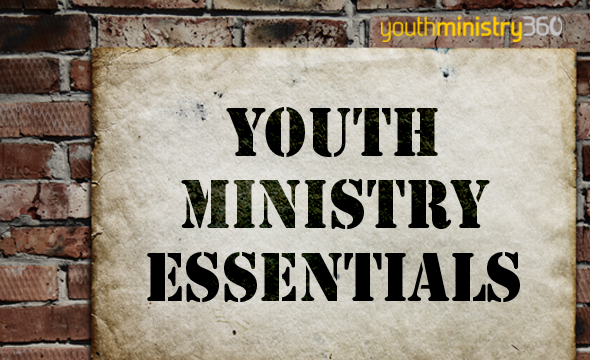
YM Essentials: Why Do You Do What You Do?
With the Fall and the new school year here in full effect, there’s no better time than right now to step back and ask a single question of your programming:
"Why"?
Now, by “programming” I mean anything on your calendar under the “youth ministry” category. That means back-to-school retreats, Sunday school, small groups, a large group mid-week gathering, your discipleship groups . . . anything. I’m suggesting that this is the perfect time to look at any and all of these events and ask, “why?”
“Why do we do this? What purpose does it serve in our overall ministry strategy?”
I’m curious: As you begin to think about this prospect, what’s going through your mind? Could you answer the “why?” for every programmed event on your calendar? Or are you worried you could find yourself scratching your head for some of them? “I don’t know exactly why we do it. We just always have.”
Here’s the deal: for a lot of you, this isn’t an exercise you need. You have a very defined ministry philosophy and a strategy to back it up. You know why you have certain programs, and you know why you don’t. But for others of you, you haven’t had that moment of intentionality where you stop for long enough to ask these questions about your programming. For you, I suggest making the time to do this exercise. Why is it important? Glad you asked . . .
I believe when we consider the current cultural climate and the state of faith development, we don’t have a lot of margin for error. Especially not errors of omission or complacency.
You don’t need to be told that in our current cultural climate, you have fewer weekly opportunities to influence your students’ faith tha you may have had a decade ago. Teenagers are busier than ever. Most of you are lucky to get a couple hours of your students’ time a week. With such a limited amount of time, how can we afford to waste it on ineffective or unintentional programs or activities?
And with the overwhelming amount cultural influences that work to steer teenagers away from following Christ, shouldn’t we be doing all we can to make sure the time we have with them is as transformative as possible? I think we should.
So, where to start?
First, I’d start by being able to at least in some form or fashion, articulate what it is you want to see accomplished in and through your ministry. It doesn’t have to be fancy or polished. But you need to have a direction.
Then, I’d list out all of your programming. On a sheet of paper, write down every structured gathering time you’ll have with your students. (Again, retreats, large group gatherings, small group gatherings, etc.)
Next, ask the question of each program: “why?”
--Why do we do this?
--Is it working in line with our ministry strategy? Or is it working against it? Are we duplicating our efforts?
--Are there holes we’re not filling?
--Is there a better way to accomplish what this event or gathering accomplishes?
Want an example? Let’s take your weekly Large Group gathering. Ask yourself, “why”? Why do we meet each week in a large group? What's the purpose? Is the answer corporate worship? Or fellowship? If so, you’re probably meeting this purpose through this gathering. But if your answer is discipleship or spiritual growth, I'm the guy that says a large group gathering may not be the most effective way to accomplish this purpose. In my experience, spiritual formation happens best in smaller groups. If your looking to meet a discipleship purpose, my belief is that a large weekly gathering may not be the most effective way to go about it.
This is just one example. And you may not agree completely with me. But it’s a useful exercise, one that I hope you will take the time to work through.
What about you? Do you take time before the upcoming year to do any sort of evaluation? What lens do you use to evaluate your programming?




Leave a comment